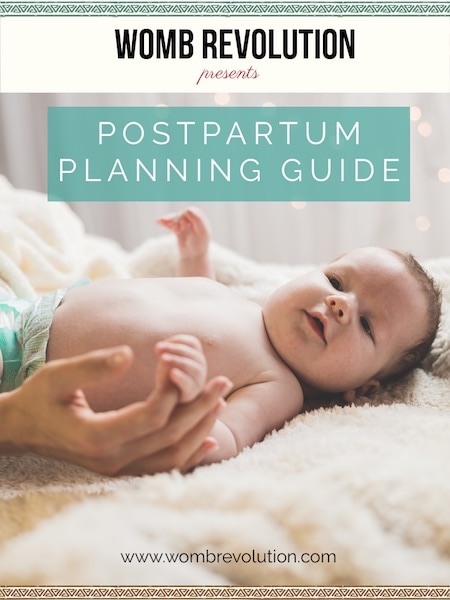This is an exciting time to be a menstruator. Many people are choosing to leave behind hormonal birth control and follow a fertility awareness based method instead. There are dozens of new companies popping up to fill a need for natural contraceptives and as a result, new opportunities have arisen for people to take control over their own fertility without medical intervention. But as Spider Man’s Uncle Ben so aptly reminds us “with great power comes great responsibility.” After all, the stakes are pretty high when we are talking about someone’s ability and desire regarding reproduction.
| “With great power comes great responsibility.” After all, the stakes are pretty high when we are talking about someone’s ability and desire regarding reproduction. |
Last month, two major fertility based technology companies were criticized for misleading consumers about their effectiveness. Both Daysy and Natural Cycles are under fire for misrepresenting efficacy rates. These apps, among others, tell a user when they are/are not fertile based on an algorithm. It’s more important than ever to demand informed choice (see my blog post about informed consent), even for these non-hormonal options.
The company that makes the popular app Daysyview (and the Daysy which is a Basal Body Temperature thermometer) was called out last month in a commentary by Chelsea Polis, a Senior Research Scientist at the Guttmacher Institute, for using misleading data to calculate their efficacy. According to a peer review by Richard Fehring, the studies used to determine Daysy’s ability to prevent pregnancy include “confounding use of other contraceptive methods with the Daysy system, questionable documentation of pregnancy, retrospective nature of the study, incorrect analysis of determining perfect use effectiveness, lack of inclusion/exclusion criteria, lack of pregnancy intentions before each cycle of use,” among other concerns. This means that people chose Daysy and trusted in Daysy based on data that is not reliable.
Natural Cycles (another BBT based app) suffered a similar blow last month due to a feature in The Guardian titled “‘I felt colossally naive’: the backlash against the birth control app.” In the feature, a woman reveals that she used Natural Cycles and became pregnant. She says: “I felt colossally naive. I’d used the app in the way I do most of the technology in my life: not quite knowing how it works, but taking for granted that it does.” Natural Cycles was approved by the EU as the first contraceptive app which undoubtedly gave a sense of security to users. In fact, just this week Natural Cycles was also approved in the US as a digital contraceptive. Natural Cycles report a 99% perfect use efficacy, but omit an important detail: Only 10% of their participants actually achieve perfect use (Hough).
Fertility awareness based technology companies have a chance to truly empower people by teaching them about their own fertility so that they may make informed choices about their reproductive health. Instead, some seem to be squandering this opportunity to make a profit. And when you think about it, it's really no wonder. Why would Natural Cycles or Daysy actually want you to understand how fertility awareness really works? Then you wouldn't need their algorithm anymore and they would stop making money. We need to demand sound, independent scientific studies, peer reviewed data presentation, and above all, true informed consent.
The good news is: you don’t need to depend on an app or an algorithm to have control over your fertility. There are several fertility awareness based methods (FABMs) that are actually effective methods of birth control.
| The good news is: you don’t need to depend on an app or an algorithm to have control over your fertility. |
Learning to observe fertility signs often gives people a deeper connection to and understanding of their own bodies. This information can help diagnose hormonal imbalances, thyroid dysfunction, gynecological issues, and fertility challenges. More importantly, understanding your own cycle will enable you to utilize its phases and their unique attributes. As you chart, you’ll notice patterns of physical energy levels, moods, and feelings. Connecting with your physical and emotional selves in new ways through understanding your menstrual phases, can be an empowering experience.
Some people find it helpful to use apps and/or high tech thermometers to help them chart. These tools are not necessary, but often make charting more approachable. There are many products available, but I would urge any users to proceed with caution. For instance, a bluetooth enabled Basal Body Thermometer that links data to your chart is probably reliable, but an app that actually tells you when you’re fertile cannot be trusted for pregnancy prevention. It should also be noted that many fertility awareness apps and technology tools--particularly the free ones--are using and selling the health data provided by users, which may not always be understood prior to use.
If you are interested in learning more about fertility awareness based methods, there are many fantastic resources and communities to help guide you through your learning. Womb Revolution is a great place to start. I’ll link several other resources below.
Information:
Pen and Paper Fertility
Fertility Friday
Taking Charge of your Fertility
Instructors:
Michele Drake (the author of this blog post)
Ashley Hartman Annis
Lisa of Fertility Friday
Hannah Ransom

Michele offers group classes in reproductive health, basic menstrual charting and achieving hormonal balance. She also offers individual coaching and support for contraception.


